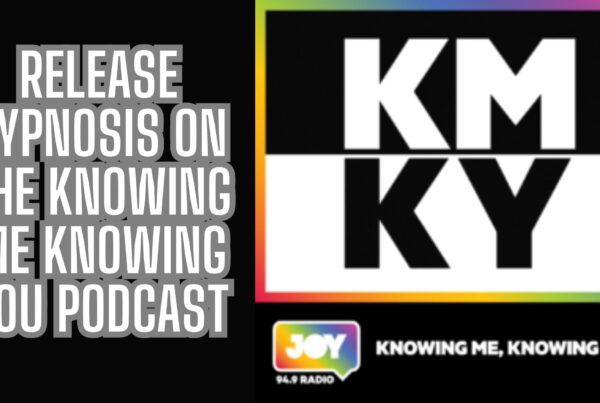OUTthink Episode 2 – Discovering Self-Acceptance Post-HIV
Discovering Self-Acceptance Post-HIV
In the latest episode of OUTthink – An LGBT Podcast, we continue our discussion with Daniel Cordner who talks about discovering self-acceptance Post-HIV diagnosis.
December 1st is World AIDS Day; an opportunity to reflect upon how far we’ve come in the fight against HIV as well as a chance to continue to bring awareness to the world about safe sex practices.
While HIV is no longer the death sentence that it once was, the impact of becoming HIV+ can still have a significant impact on that person’s mental health.
HIV doesn’t discriminate either. While HIV has long been associated with the gay and lesbian community, the reach of this virus goes far beyond that.
When a person becomes HIV+, there is the likelihood that they’ll be dealing with new issues around shame. Because of the means of transmission, they may feel ashamed to talk openly about their circumstances. They may decide to keep the diagnosis secret initially while they aim to make sense of what they should do next and who they should tell. They may go through a sense of anger or denial or experience a sense of their mortality that becomes increasingly uncomfortable for them. They may find that their own self-talk around who they are becomes quite negative and they may find it hard to reach acceptance that people do make mistakes and that this isn’t going to be something that is going to completely ruin their lives.
The fear for many is that this disclosure is going to cause them to lose their family and friends and that they may find themselves alone and rejected. When kept secret, it can be very easy to understand why some may feel that this is happening to them alone, unaware of how many others they may know who are going through or have gone through similar experiences.
Daniel has been living with HIV for the past 11 years. When he first diagnosed as positive, there was an element of denial in his response to it. Being told that the virus was living ‘in harmony’ with his body, it wasn’t until AIDS-defining illnesses began to show that he realised he needed to change the way he thought about the virus and how it impacted on him. He had been quite selective about who to tell initially, fearing that sharing his secret with the wrong person could lead to the worst.
“For me to dismantle the shame, primarily, I had to accept that I was HIV+”, says Daniel. “I thought I had accepted it, but I actually really hadn’t. I had to accept that, well, this is something living within me.”
Once he came back from travel with two AIDS-defining illnesses, it highlighted to him that he really hadn’t reached acceptance on something that he had thought he had. However this was a turning point as it meant that Daniel had to acknowledge it, talk about it and deal with it and this, in turn, helped his awareness towards it and his acceptance to it. Being placed on medication has helped Daniel with reaching acceptance as it is a daily reminder that he is living with this virus.
“Each morning”, says Daniel, “I take a tablet and, I don’t ponder it for hours on end, but it is a little reminder of the fact that there is a virus living in my body and I need to pay attention to that, acknowledge it and accept it.”
For many people, keeping their ‘secret’ is one of the ways in which we hold shame in place. Being able to share it with others and have it greeted with empathy and understanding is a way in which we can release ourselves from our shame. For Daniel, as a speak with the Positive Speakers Bureau, he has been able to help remove the stigma that has impacted on people living with HIV by talking, sharing and educating.
“Being a public speaker, you got to overcome your fear, your nerve, the anxiety and also just bearing your soul on stage in front of people that could be sitting out there and judging you. I feel quite empowered by confidently sharing my story. I touch on the hardships and the difficult times but I also talk about the great things that have come from that. By sharing the story, people can start to see that. They can see the diagnosis was difficult and there has been some challenges but you’ve been able to overcome that.”
For those keen to hear more of Daniel’s story, you can hear him speak in the first two episodes of OUTthink, a podcast created that talks about events and situations that impact on LGBTQIA community members lives and the psychology and thinking that accompanies it. You can download the podcast from Podomatic, subscribe on iTunes or simply stream it from Youtube.
Release Hypnosis is also running it’s yearly Positive Change campaign throughout December where your session can help raise funds for the Victorian AIDS Council.
You might also want to read:
Unexpected Emotions Around Orlando
POSITIVE CHANGE Campaign 2016
How I Lost My Weight… And Kept It Off
OUTthink – Chat with Daniel








